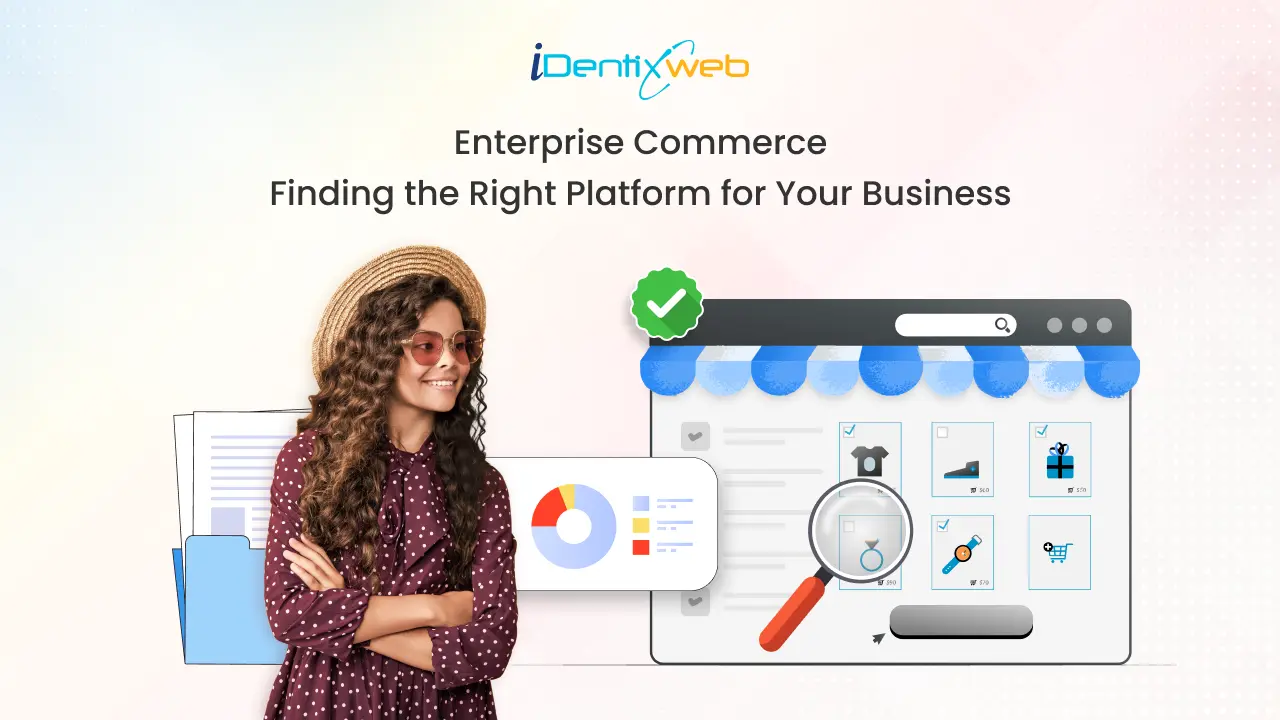
Global ecommerce sales have passed $6 trillion and are projected to hit $8 trillion by 2027, proving how quickly the industry is growing. A survey reveals that 67% of retail executives intend to upgrade their ecommerce platforms, with ease of use and quick setup as their top priorities.
To keep up with market demands, businesses often need to re-platform. The wrong choice can slow growth and force another switch in just a few years.
This guide is for businesses choosing their first enterprise platform or planning to re-platform. We’ll cover the pros and cons of leading enterprise commerce platforms to help you make the right decision.
What is Enterprise Commerce?
Enterprise commerce is digital commerce built for large businesses that handle high sales volumes, global operations, and multiple sales channels or brands.
Unlike basic ecommerce solutions, enterprise platforms include advanced features such as:
- Integration with ERP and CRM systems.
- Strong security and compliance.
- Support for both B2B and B2C sales.
- Options for headless architecture.
- Deeper customization and automation.
Why Work With an Enterprise Ecommerce Platform?
An enterprise ecommerce platform gives large businesses the tools and flexibility they need to grow without limits. Unlike basic platforms, these solutions are built to handle massive product catalogs, heavy traffic, and complex operations across multiple markets.
Working with an enterprise platform helps businesses:
- Scale with confidence during peak seasons or global expansion.
- Streamline operations through automation and system integrations.
- Deliver better customer experiences with faster, more personalized shopping.
- Stay secure and compliant with advanced protection and global standards.
Top Enterprise Ecommerce Platforms
Choosing the right enterprise platform is one of the most critical steps for long-term growth. Here are five leading options, with their key details.
Shopify Plus
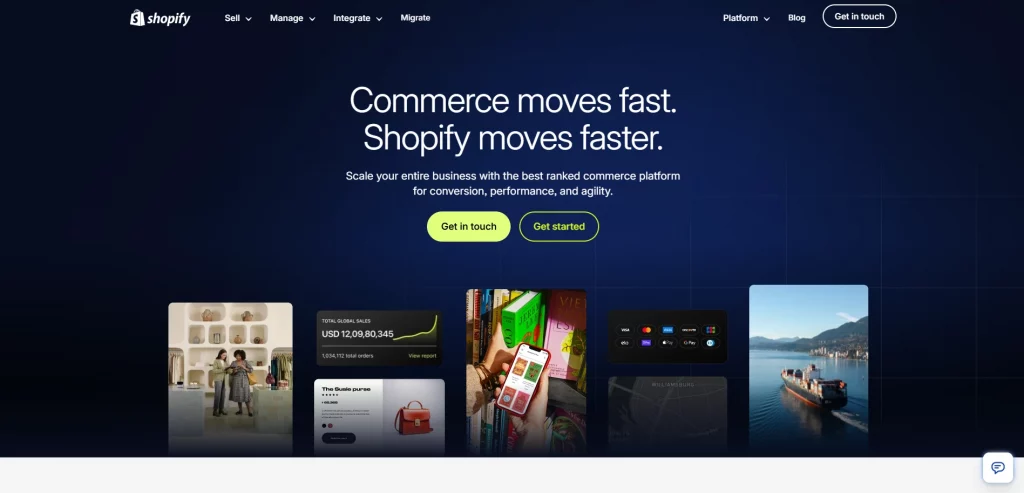
Shopify Plus is a cloud-based enterprise ecommerce platform built for fast-growing and large-scale businesses. It stands out for its simplicity, ease of use, and robust ecosystem, enabling brands to expand globally without heavy technical challenges.
Designed to handle high traffic and transaction volumes, it delivers consistent speed and reliability. Shopify Plus is an ideal choice for companies that want to scale quickly, automate key processes, and manage multi-channel sales with minimal complexity.
Pricing Plans
- Starts at around $2,000/month.
- Custom quotes available based on business size, sales volume, and feature requirements.
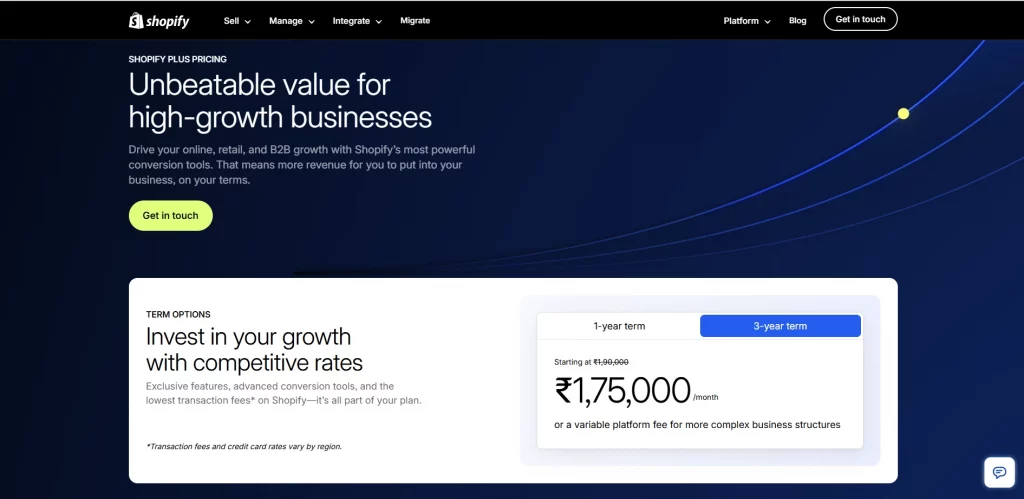
Key Features
- Multi-channel selling across web, mobile, social platforms, and marketplaces.
- Shopify Flow for advanced automation and workflow management.
- 24/7 dedicated priority support with account management.
- Integration with thousands of third-party apps and APIs.
- Scalability for global expansion with multi-store, multi-currency, and multi-language support.
- Strong ecosystem of apps and partners for marketing, logistics, and payments.
Adobe Commerce (Magento)
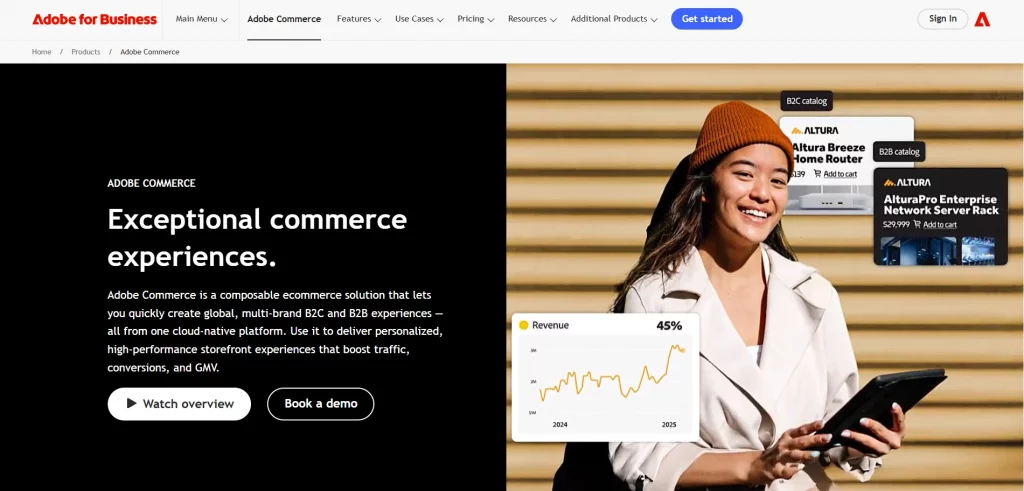
Adobe Commerce (formerly Magento) is a highly flexible enterprise ecommerce platform built for businesses that need complete control over their operations. It supports both open-source and cloud-hosted options, making it adaptable to different needs.
With its strong architecture, it handles extensive catalogues, complex pricing, and advanced customer experiences, making it ideal for enterprises that prioritise customisation, scalability, and seamless integrations - which is why many organisations partner with the best Magento development companies to fully leverage its capabilities.
Pricing Plans
- Starts at around $40,000/year for the cloud edition.
- Costs vary widely depending on hosting, custom development, and business requirements.
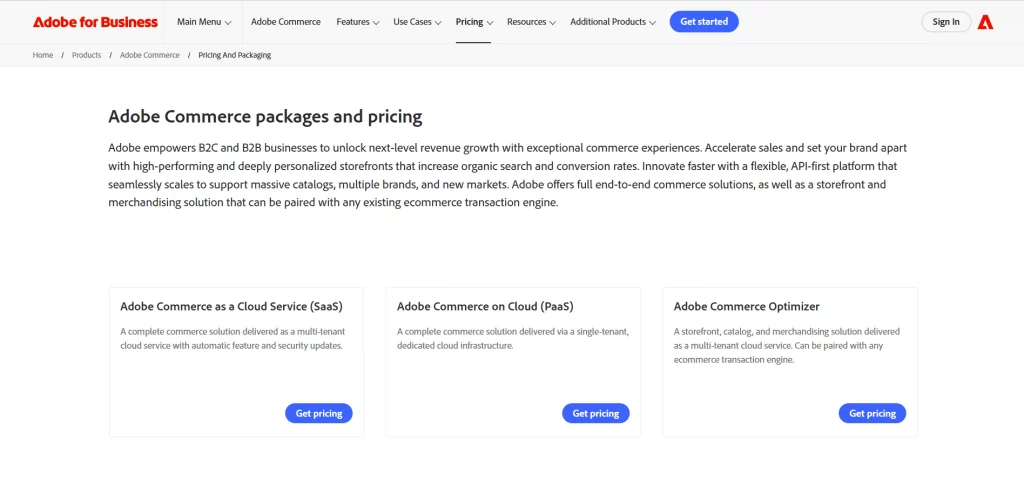
Key Features
- Flexible deployment options, open-source or cloud-hosted.
- Advanced product catalog and inventory management.
- Strong B2B and B2C functionality within the same platform.
- Highly customizable storefronts with advanced design control.
- Personalization and customer segmentation tools powered by Adobe Sensei AI.
- Support for multiple stores, currencies, and languages.
- Robust API framework for integrations with ERP, CRM, and third-party systems.
- Strong scalability to handle global traffic and peak shopping seasons.
Salesforce Commerce Cloud
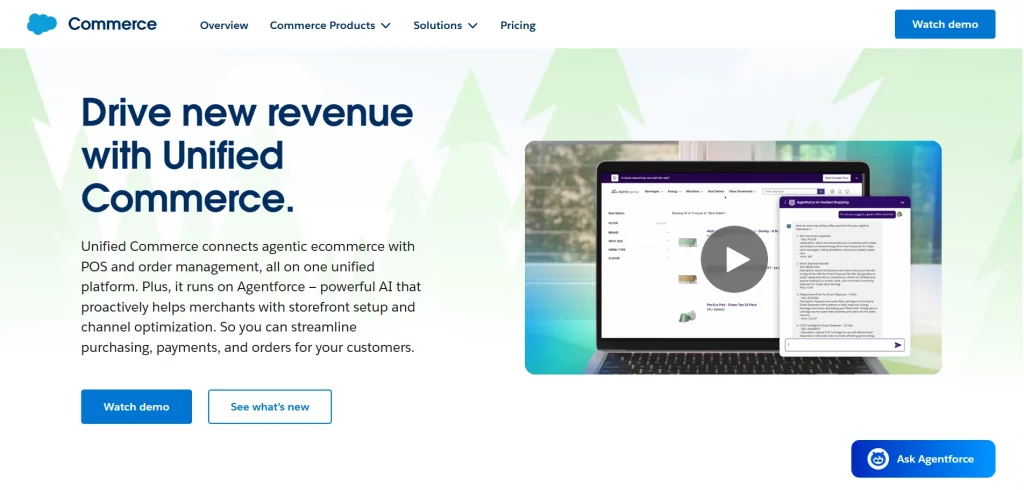
Salesforce Commerce Cloud is a CRM-first enterprise ecommerce platform that blends powerful ecommerce capabilities with advanced customer data management. Designed for customer-focused businesses, it offers deep integration with Salesforce’s ecosystem, making it easier to create personalized, data-driven shopping experiences. Its cloud-native architecture ensures flexibility, scalability, and security for global operations.
Pricing Plans
- Typically, 1–2% of gross merchandise value (GMV).
- Final cost depends on business size, transaction volume, and customization needs.
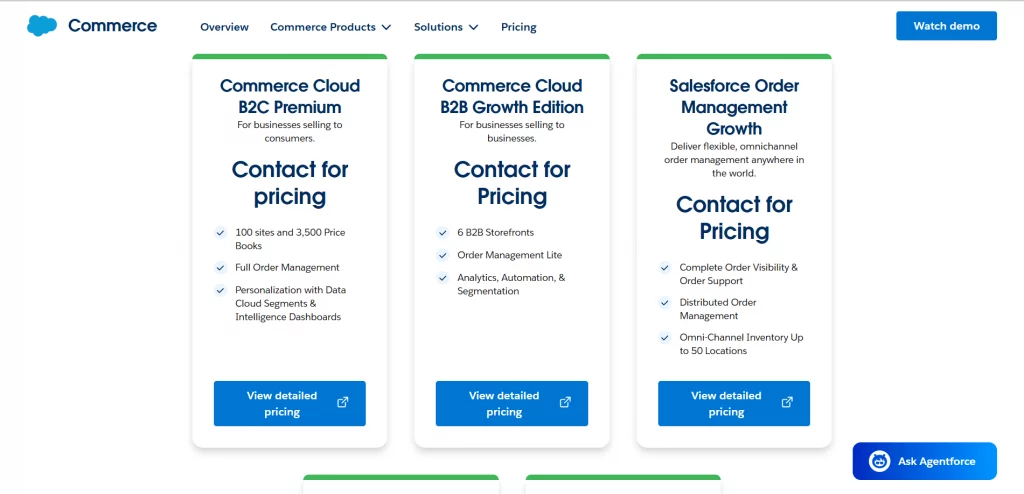
Key Features
- AI-driven personalization powered by Salesforce Einstein.
- Seamless integration with Salesforce CRM and marketing tools.
- Omnichannel order management for a unified shopping experience.
- Multi-language and multi-currency support for global commerce.
- Cloud-based scalability with strong reliability and performance.
- Built-in tools for promotions, loyalty programs, and customer engagement.
- Advanced analytics and reporting for data-driven decision making.
Bigcommerce Enterprise
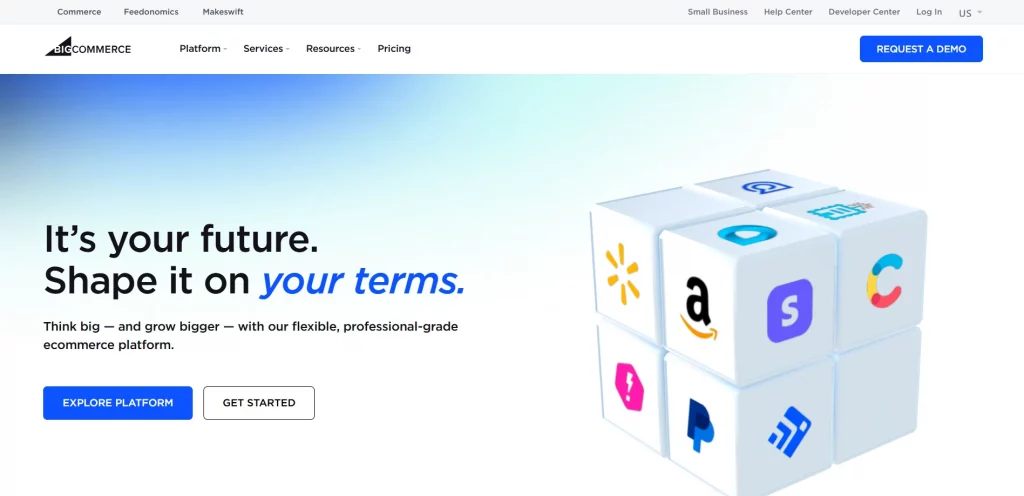
BigCommerce Enterprise is a flexible SaaS ecommerce platform designed for high-growth businesses that need scalability without the heavy complexity of open-source solutions. Known for its API-first architecture, it supports both B2B and B2C models, making it a versatile choice for diverse business needs. BigCommerce provides robust performance, strong reliability, and a lower total cost of ownership compared to many enterprise alternatives.
Pricing Plans
- Starts at around $400/month for Enterprise plans.
- Custom quotes available for larger businesses based on scale and requirements.
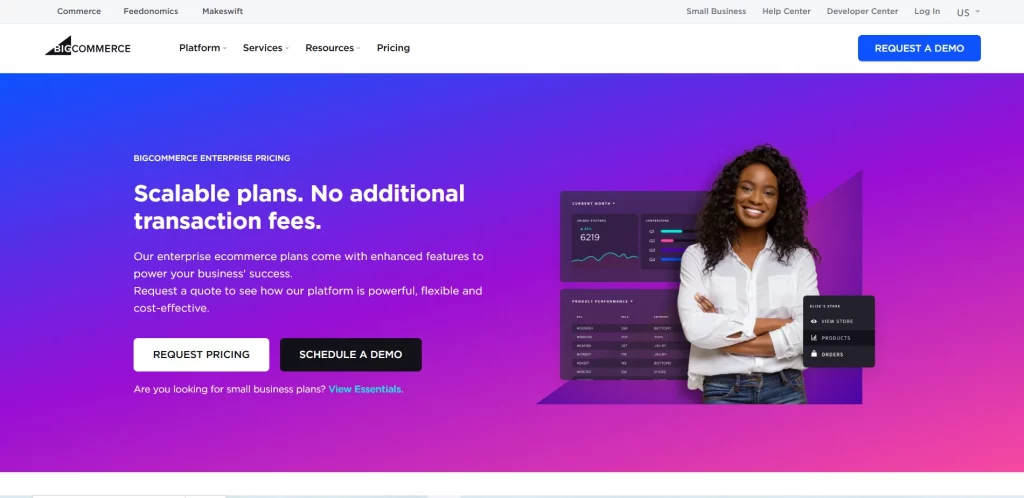
Key Features
- Open APIs to support headless commerce and advanced integrations.
- Built-in B2B features like customer groups, custom pricing, and quote management.
- Multi-storefront support for running multiple brands under one account.
- Advanced SEO tools to improve visibility and organic traffic.
- Native integrations with leading ERP, CRM, and payment systems.
- No transaction fees, helping businesses reduce costs at scale.
- Scalable infrastructure capable of handling peak traffic and high sales volume.
Conclusion: Selecting the Best Platform for Your Business Needs
Selecting the right enterprise ecommerce platform can be challenging, as each business has unique goals, sizes, and industry needs. It’s essential to consider factors like scalability, integration, security, and customization for long-term success.
Enterprise commerce is now a necessity for large businesses. The right platform helps manage complexity, improve customer experiences, and scale operations.
FAQs Enterprise Commerce
1. What is enterprise commerce?
Enterprise commerce refers to ecommerce platforms built for large businesses with high transaction volumes and complex operations.
2. How do I choose the right enterprise ecommerce platform?
Consider scalability, customization, integration, security, and future growth needs when choosing a platform.
3. What are the benefits of enterprise ecommerce platforms?
They streamline operations, improve customer experience, offer scalability, and support complex sales processes.
4. What are the top enterprise ecommerce platforms for 2025?
Top platforms include Shopify Plus, Magento, Salesforce Commerce Cloud, BigCommerce, and SAP Commerce Cloud.
5. What factors should be considered when evaluating an enterprise ecommerce platform?
Look at scalability, integration, security, customization, and pricing when evaluating a platform.


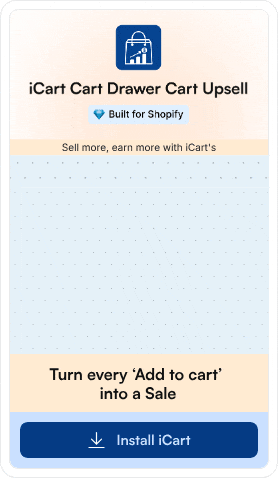
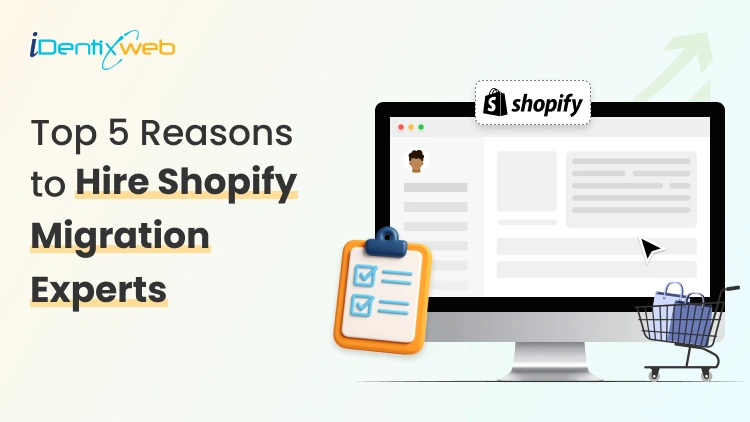

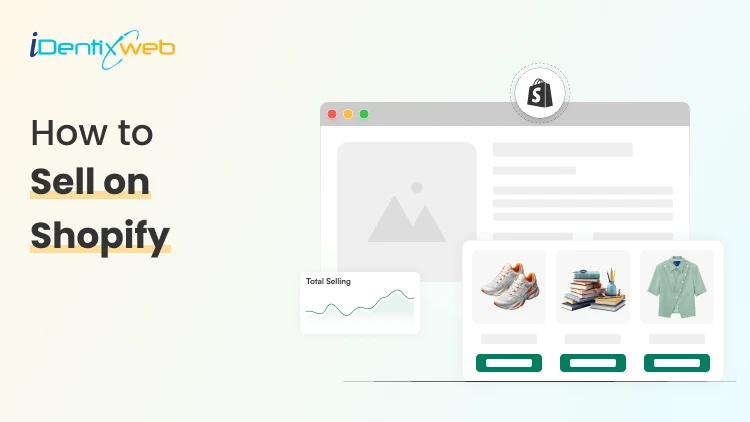

About the author
Bhavesha Ghatode
Explore Content with Bhavesha, a passionate and dedicated technical content writer with a keen understanding of e-commerce trends. She is committed to sharing valuable insights, practical assets, and the latest trends that can help businesses thrive in a competitive environment.